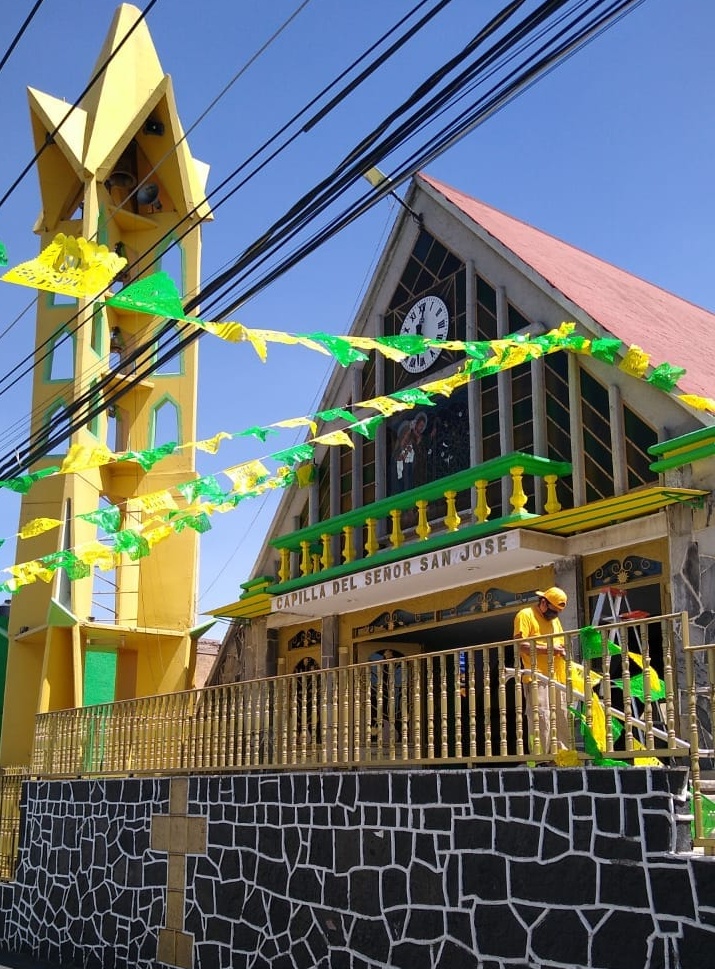
El Barrio San José es el más septentrional de los ocho barrios originarios del Centro Histórico de Iztapalapa. Antigua zona de cultivo chinampera, formó parte de la ciudad de Axomulco durante la mayor parte del período colonial. Actualmente, gran parte de su territorio histórico lo ocupa la Central de Abasto, el principal centro logístico y comercial mayorista y minorista de productos de consumo de la Ciudad de México y zona metropolitana.
Al igual que sus vecindarios limítrofes, este diminuto barrio es también un participante prominente en las mundialmente conocidas celebraciones de la Semana Santa de Iztapalapa, que incluyen excepcionales y multitudinarias procesiones y representaciones de la Pasión de Cristo.
Demasiado pequeño para tener su propia iglesia parroquial, sus capillas tradicionalmente han dependido de la Parroquia de San Lucas Evangelista. La actual Capilla del Patriarca Señor San José, data de la década de 1990 y es un ejemplo de la alta arquitectura religiosa modernista del siglo XX. Algo más al norte, en la esquina entre Cuauhtémoc y Guadalupe Victoria, se conservan las ruinas de una antigua capilla cuyos arcos ojivales se distinguen incluso entre las quebradas calles de San José, que delatan la antigua geografía serpenteante de canales y senderos propia de la zona.
La Capilla del Patriarca Señor San José se encuentra a unos 8 minutos a pie en dirección norte de la Parroquia de San Lucas, la Macroplaza Cuitláhuac y del Mercado Cabecera de Iztapalapa.
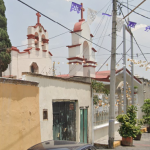
Cercano a 0.26 kms.
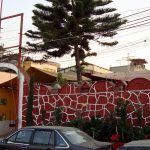
Cercano a 0.36 kms.
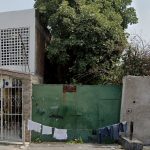
Cercano a 0.36 kms.
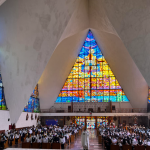
The most spectacular modernist church in the Jardín Balbuena
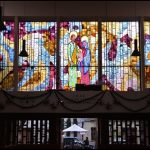
La construcción se inauguró en enero de 1967 y se ha convertido en un centro de oración para los vecinos de la zona.
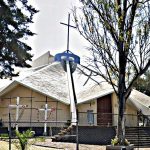
A circular modernist church on the heights over Álvaro Obregón . . .
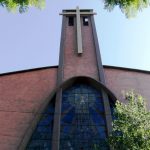
A modernist church in a giant 20th century neighborhood . . .
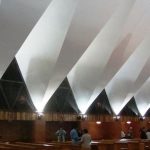
A modernist triumph and neighborhood church in Espartaco, Coyoacán . . .